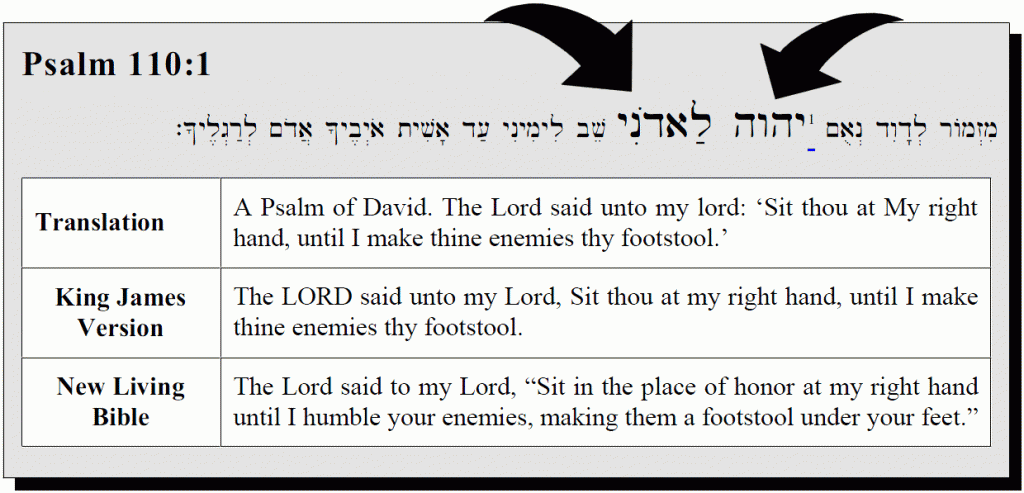“The Proper name of God in the Old Testament: In the Scriptures, the name of God is most significant and understandably so. It is inconceivable to think of spiritual matters without a proper designation of the Supreme Deity. Thus the most common name for the Deity is God, a translation of the original Elohim. One of the titles for is Lord, a translation of Adonai. There is yet another name which is particularly assigned to God as His special or proper name, that is, the four letters YHWH (Exodus 3:14 and Isaiah 42:8). This name has not been pronounced by the Jews because of reverence for the great sacredness of the divine name. Therefore, it has been consistently translated LORD. The only exception to this translation of YHWH is when it occurs in immediate proximity to the word Lord, that is, Adonai. In that case it is regularly translated GOD in order to avoid confusion.
It is known that for many years YHWH has been transliterated as Yahweh, however no complete certainty attaches to this pronunciation.”
(NASB Quick Study Bible, Preface to the New American Standard Bible, p. viii)
“The LORD says to my Lord ….” (NASB1995)
Notice the translation error?
The LORD (Yahweh) says to my Lord (Adonai). This is incorrect. Yahweh is absolutely not speaking to Adonai. The actual Hebrew word is adoni (lord); a title which occurs 195 times in the Hebrew Bible, and never as a title ascribed to Yahweh.
NASB translates the Hebrew word correctly in 194 of the occurrences. Psalm 110:1 is the only occurrence where NASB translates it incorrectly.
“The LORD says to my lord …” (NABRE)
Notice the correct translation of the Hebrew word in this Catholic Bible. Yahweh is speaking to my adoni, not to my adonai.
“The LORD says to my lord …” (ERV, EHV, GNT, MEV, NET, NIV, NRSV, RSV)
“A declaration of Yahweh to my lord …” (LEB)
“Hashem said unto Adoni …” (OJB)
Hashem -> The name (which is not pronounced, the tetragrammaton, YHWH) said unto Adoni. Note, the Hebrew word is correctly reported, but what is the translator suggesting by capitalizing the word? This is an example of translator bias.
The majority of English translations of Psalm 110:1 mislead the reader by incorrectly translating the Hebrew word adoni.
Who is the Lord God? Yahweh. Hashem. Adonai.
Who is not the Lord God? The one whom Yahweh speaks to: adoni.


